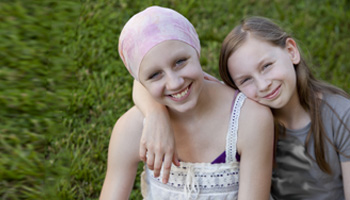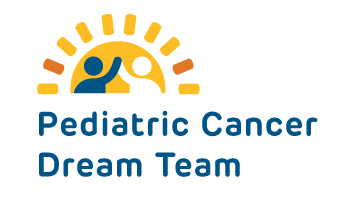HOW CAN WE HELP YOU? Call 1-800-TRY-CHOP
In This Section
Pediatric Cancer Dream Team Receives Team Science Award From AACR

The “Pediatric Cancer Dream Team” received the AACR Team Science Award.
shafere1 [at] chop.edu (By Emily Shafer)
Cancer research is a team sport — this is especially true for pediatric cancer research.
“The field of pediatric cancer research has always been a leader in team science because of the thankful rarity of childhood cancers compared to adult cancers,” said John Maris, MD, a pediatric oncologist and physician-scientist at Children’s Hospital of Philadelphia. “Since the 1960s, we’ve known that we have to work together to share data in order to improve outcomes in these children.”

Dr. Maris co-leads the “Pediatric Cancer Dream Team”
Dr. Maris, the Giulio D’Angio Chair in Neuroblastoma Research at CHOP, co-leads the “Pediatric Cancer Dream Team,” which is dedicated to finding new treatments for challenging childhood cancers. This year, the American Association for Cancer Research (AACR) presented the Dream Team with the AACR Team Science Award, which recognizes an outstanding team of researchers for their innovative cancer research.
"I think that because of this team, there are children who are alive today who wouldn’t be,” said Dr. Maris, also a professor of Pediatrics at the University of Pennsylvania Perelman School of Medicine. “In the cancer community, the Team Science Award is considered a very prestigious award. In our mission to cure more patients with childhood cancer, this award gives us additional credibility and visibility.”
The St. Baldrick’s Foundation and Stand Up To Cancer (SU2C) collaborated in 2013 to create the Dream Team, which consists of about 200 researchers across 10 children’s hospitals who conduct childhood cancer-focused research. Crystal Mackall, MD, Ernest and Amelia Gallo Family Professor of Pediatrics at Stanford University, is co-leader with Dr. Maris. The initial $14.5 million grant was four years, and in 2017, the St. Baldrick’s Foundation renewed its commitment with another $8 million in funding, matched by each of the institutions for $16 million in total additional funding.
To date, the collaboration has resulted in 361 peer-reviewed published manuscripts, 50 patent applications, the generation of more than $141 million in additional grant funding, and the treatment of more than 1,160 children through early-phase clinical trials, some of whom have shown long-term, complete responses.
“Physician-scientists have the blessing and the curse of being in the clinic and seeing the problem, but then being able to go back to the lab to try the fix those problems, and we will keep researching until we do,” Dr. Maris said.
The Dream Team’s research focuses on genomics and immunotherapy. Childhood cancers are not genetically the same as adult cancers, and thus, the same immunotherapy targets used in adults cannot be applied to childhood cancers. In addition to identifying new targets in these cancers, the team works on building new anti-cancer antibodies, antibody-drug combinations, and CAR T cells to engage with these targets and destroy cancer cells.
Their work has led to the development of CD19-directed CAR T cell therapies for refractory childhood leukemia. The various stages of this research appeared in The New England Journal of Medicine, The Lancet, and Blood. They also have led efforts to target CD22 with CAR T cells. Furthermore, they have shown activity of HER2-directed CAR T cells in pediatric sarcoma and pediatric glioblastoma.
The Dream Team launched the first bispecific cellular therapy clinical trial, and they also opened several clinical trials for pediatric solid tumors. The team’s efforts led to the creation of the Pediatric Cancer Immunotherapy Discovery and Development Network and the Pediatric Cancer Immunotherapy Trials Network, both funded through the National Cancer Institute’s Cancer Moonshot initiative.
An aspect of the Dream Team that Dr. Maris is especially proud of is that it has fostered the careers of young investigators.
“This ecosystem has become a great place to train our students and postdoctoral researchers, giving them experience in various techniques and across difference labs,” Dr. Maris said. “This has become a great environment for progress and a real model for team science.”
But most importantly, the team is proudest of the positive impact it has had on countless children and families with some of the most aggressive childhood cancers.
“We have provided hope and cures for patients who had no hope before our team existed, and we plan to expand on this moving forward,” Dr. Maris said.